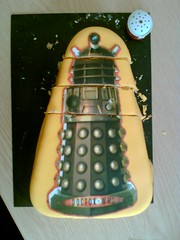Before we can move on to the canonical episodes of season 3 of The West Wing, we first must deal with the “play” that was broadcast in place of the season opener in response to the events of 11th September 2001. It’s called “Isaac and Ishmael” and I didn’t like it when it was first broadcast. It’s grown on me a little but I’m still not a fan. A friend saw it in America when it was first shown and commented that he thought it should be shown in every classroom there. He’s probably right, but it demonstrates the audience to which “Isaac and Ishmael” is pitched. The main plot involves a group of swotty schoolkids visiting the White House who are taught by the regular cast the meaning of right and wrong. Well, about the terrorist threat, but it’s not far off. I don’t have a problem with the message, which is reasonable and balanced, but it’s not delivered in the most subtle way.
What redeems “Isaac and Ishmael” is the other plot, in which Leo interrogates an Arabic staffer suspected of being a terrorist. It takes quite a risk in painting one of the lead characters as a little bit racist, but it works well – and as Lord Stevens comes out with unpleasant stuff about passenger profiling, it’s worth noting Leo’s subsequent apology:
“That’s the price you pay… for having the same physical features as criminals. That’s what I was gonna say. […] I’m sorry about that.”
Back to the series proper, which begins with the President kicking off his re-election campaign, resolving season 2’s cliffhanger in flashback. There is a sense that, compared to the previous years, episodes are a little less self-contained, with the series becoming more of an ongoing story. Nevertheless, episodes still tend to be defined by a specific incident. The cast continue to hit the mark throughout – and the several Babish/Mrs Bartlet scenes are very welcome.
Highlights include “The Indians in the Lobby” – not so much for the Native American A-plot, but for the delightfully silly scene in which the President calls an information line to get their advice on cooking stuffing.
“If I cook it inside the turkey, is there a chance I could kill my guests? I’m not saying that’s necessarily a deal-breaker.”
CJ’s character goes a little over the top in “The Women of Qumar”, but this is quickly forgotten as it is followed by “Bartlet for America”, another flashback to the campaign trail, in which Leo takes centre stage. It introduces Joanna Gleason as Jordan Kendall, who makes up a top double act with John Spencer, and is funny as well as poignant. “The Two Bartlets” offers another enjoyable and dramatic two-hander between Martin Sheen and Richard Schiff, and leads to the welcome return of Adam Arkin in “Night Five”. “Dead Irish Writers” is great fun: Roger Rees makes another entertaining appearance as John Marbury (to tackle the US’s conflicting attitudes to Islamic extremism and Irish terrorism) and Stockard Channing gets several good scenes as Abigail Bartlet celebrates her birthday. “Stirred” is a nice little episode about the Vice-President, Ian McShane pops up in the following episode with a memorable appearance as a Russian diplomat (even if his Russian accent is a little less than convincing), and then we’re into the final three: “The Black Vera Wang”, whose final scene is rather sinister for The West Wing; “We Killed Yamamoto”, which is pretty much a setup for the finale; and “Posse Comitatus”, which features historical Shakespeare on stage and political intrigue, murder and assassination off it. There’s a great Sam and Toby scene with the press outside the theatre in New York, and the final shots of the tainted President in shadow and in silhouette are evidence of yet more quality direction. I couldn’t help feeling though, as Jeff Buckley sings over a sequence of tragic, dialogue-free scenes, that the production team had decided that “Brothers in Arms” had worked so well over the climax of “Two Cathedrals” that they should do the same thing again. Despite the dejà vu, it’s still a marvellous episode.
Look out for: CJ mentions Freedonia, later used in more detail in a season 6 episode of that name. Several different characters say, “Don’t talk to me like I’m other people,” a line which has cropped up in previous seasons too. CJ calls Simon Donovan “Agent 99“. CJ (again), singing Right Said Fred’s “I’m Too Sexy” in “Gone Quiet”.
Don’t look out for: Armin Shimerman off of Buffy the Vampire Slayer and Star Trek: Deep Space 9. Although credited in “Posse Comitatus”, you’ll struggle to find him. I suspect his dialogue was cut.
Six degrees of Alan Dale: even more actors from The West Wing who pop up in Lost or 24. Connie Britton from Spin City plays adviser Connie Tate; she also appears as Diane Huxley in 24 Day 5. Kevin Tighe, who plays Indiana Governor Jack Buckland, is Locke’s father Anthony Cooper in Lost. Randy Thompson, who has a small role as a potential donor in “Bartlet for America” is a bomb technician in the finale of the third series of 24. Gregory Itzin pops up in one scene in “Enemies Foreign and Domestic”; he went on to play rubbish president Charles Logan in 24. Now the biggies. Jenny Gago appears in “The Indians in the Lobby” and uncredited in an episode of the first series of 24; she also appears as a CIA agent in the first season Lost episode “The Greater Good”. Finally, Evan Handler plays Doug Wegland in three episodes of The West Wing, is in an episode of Day 4 of 24 (as mentioned in my review of that), and plays Dave in the Lost episode “Dave”. He is also one of many West Wing to appear in the pilot episode of Studio 60 on the Sunset Strip.
Best episodes: Bartlet for America, Dead Irish Writers, The Black Vera Wang, Posse Comitatus



Recent comments